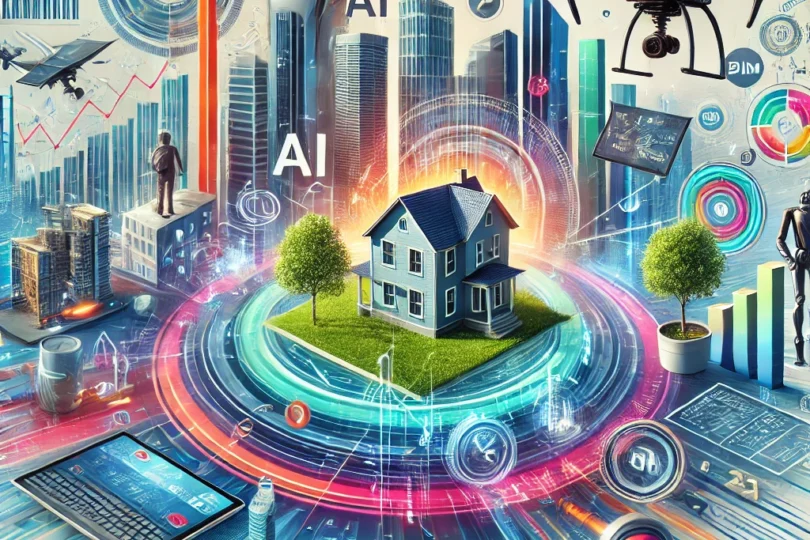Summary and Opinion
The real estate sector is continuously evolving, influenced by technological advancements and shifting market dynamics. As we delve into 2024, several key trends are shaping the future of real estate education and services, including the integration of AI, the use of advanced technologies like BIM and drones, and the increasing focus on sustainability and green practices.
1. Integration of AI in Real Estate: Artificial intelligence (AI) is playing a pivotal role in the real estate industry, particularly in property search and analysis. AI enhances the efficiency of property management by streamlining processes such as due diligence and fraud detection. Additionally, AI-driven predictive analytics offer deep insights into market trends, property values, and tenant behaviors, empowering professionals to make data-driven decisions. This trend highlights the importance of embracing AI to stay competitive in the real estate market (PwC).
2. Advanced Technologies: BIM and Drones: The adoption of Building Information Modeling (BIM) and drones is revolutionizing construction and property management. BIM provides comprehensive 3D modeling and data management, enabling more efficient design, construction, and maintenance of properties. Drones complement BIM by offering cost-effective aerial data collection for property inspection and site surveys. These technologies not only enhance accuracy and efficiency but also lead to significant cost savings, making them invaluable tools for real estate professionals (Mind Studios).
3. Focus on Sustainability and Green Practices: Sustainability is becoming a critical factor in real estate, with an increasing emphasis on eco-friendly building materials, energy-efficient designs, and green neighborhood developments. Properties that prioritize sustainability attract environmentally conscious buyers and command higher values. This trend is driven by the growing demand for buildings that minimize environmental impact while providing modern amenities. As a result, real estate professionals are focusing on incorporating green technologies and practices into their projects (City University of London).
In conclusion, the real estate education and services landscape in 2024 is being shaped by AI integration, advanced technologies like BIM and drones, and a strong focus on sustainability. These trends underscore the need for continuous adaptation and innovation to meet the evolving demands of the market. By staying informed about these developments, real estate professionals can better position themselves to succeed in this dynamic industry.
Hashtags
#RealEstateEducation #AIinRealEstate #BIM #SustainableRealEstate
Backlinks to Original Articles
https://www.pwc.com | : | https://www.themindstudios.com | : | https://www.city.ac.uk





This comment offers a comprehensive overview of the evolving trends in the real estate sector as we approach 2024. The integration of artificial intelligence (AI) is revolutionizing property search and management, providing professionals with powerful tools for due diligence, fraud detection, and predictive analytics. These AI-driven insights enable more informed decision-making and enhance the overall efficiency of real estate operations, emphasizing the critical need for the industry to embrace these technologies to maintain competitiveness.
Furthermore, the adoption of advanced technologies such as Building Information Modeling (BIM) and drones is transforming construction and property management practices. BIM’s 3D modeling capabilities facilitate more efficient design, construction, and maintenance processes, while drones offer cost-effective solutions for property inspections and site surveys. The combination of these technologies not only improves accuracy and efficiency but also leads to substantial cost savings, making them essential tools for modern real estate professionals.
The growing focus on sustainability and green practices reflects an increasing demand for eco-friendly building materials, energy-efficient designs, and sustainable neighborhood developments. Properties that prioritize sustainability are not only more attractive to environmentally conscious buyers but also tend to command higher values. This trend underscores the importance of incorporating green technologies and practices into real estate projects to meet the rising expectations of buyers and the broader market.
In conclusion, the real estate education and services landscape in 2024 is being shaped by AI integration, advanced technologies like BIM and drones, and a strong focus on sustainability. These trends highlight the need for continuous innovation and adaptation within the industry. By staying informed about these developments, real estate professionals can better position themselves for success in a dynamic and evolving market.